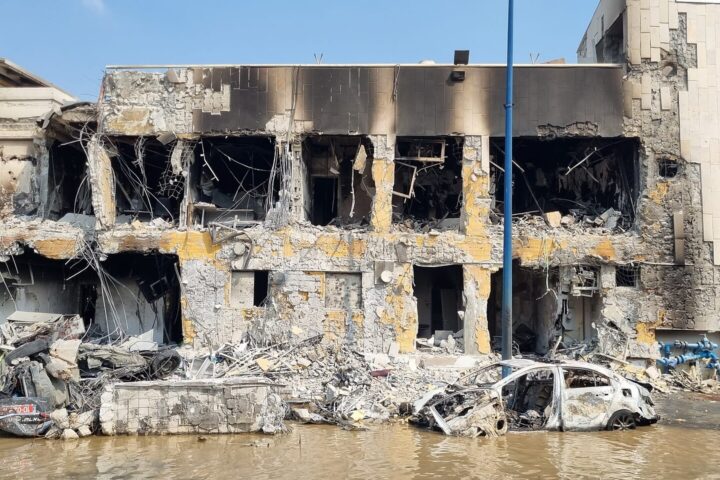Global energy markets are looking for a way out of the current crisis, partly caused by the Russian invasion of Ukraine and due to COVID-19 fallout, economic growth and a shortage of investments. Before the Ukraine crisis, Western countries faced an uphill battle to counter the growing demand for oil and gas while energy markets were in a supply crunch.
The well-reported European energy crunch, which began in 2021 with extremely high natural gas prices, was not pushed by Ukraine but by the weaponization of the energy exports strategy of Russian president Vladimir Putin.
The latter already understood that Russia had a strong and effective pressure instrument in its hands to squeeze and force Europe to be more flexible in its position toward Russia.
While the attention was focused on a potential shortage in European gas storage, global oil markets continued their rally, showing an already hiding demand-supply crunch.
OPEC+, which is OPEC countries, Russia and others, was still keeping to its export strategies, not to bring prices down but to remove the former 2019-2021 oil glut.
Oil markets were stressed as supply kept lagging behind demand, possibly around 2.5-3 million bpd.
Increased economic recovery in OECD countries pushed global demand to almost higher than oil demand in 2019.
A possible 100 million bpd in 2022 is expected if no real economic fallout comes from Ukraine or a possible Black Swan.
Western sanctions on Russia already have squeezed markets even more, as a potential 3.4.-5 million bpd of Russian crude and petroleum products are at risk.
If sanctions will be 100% effective is disputed, but the market needs Russian crude-like volumes from other producers, which are currently very hard to find.
The main suspects would be Iran, Venezuela, and other Arab countries, but Tehran and Caracas face sanctions.
Therefore, no quick wins are to be expected.
All eyes were on OPEC+, as the latter has been meeting to discuss a potential oil export increase, while at the same time, analysts have been asking if Russia would still be playing a role in future.
In a surprise move, OPEC+ has decided to increase its production volumes by almost 650,000 bpd, up from planned increases of about 400,000 bpd.
However, the surprise move by the oil group, including Russia, did not have a long-lasting effect on oil prices.
Just hours after, oil again went up, even higher than before.
Some analysts have indicated that the output hike is linked to an expected trip of US president Biden to Saudi Arabia.
It will be the first time Biden meets Saudi Crown Prince Mohammed bin Salman, who Washington castigated after the Khashoggi murder.
MBS, however, has been holding off Biden’s advances, as Washington has been pleading for more oil on the market in a move to quell high gasoline prices.
Saudi, supported by the UAE and others, always reacted by stating ‘they will behave prudently in a market full of uncertainty’.
It will now be interesting to see if the current output hike will be followed by more in the coming months and if OPEC can keep its promises.
Until now, OPEC+ has not been hitting targets set, with an over compliance in place.
Some now argue that OPEC leader Saudi Arabia and others are already without real spare production capacity due to the Ukraine crisis and underinvestment worldwide.
In the coming weeks, it will become clear what the specific position of Saudi Arabia and Abu Dhabi (UAE) in this space will be.
Without the needed, 2-3 million bpd spare production capacity, OPEC is looking at a possible diminishing role in future.
Pressure is on OPEC to decide the future of OPEC+, as Russia has become a major outcast in the market and is looking at a possible steep decline in overall production in the coming months.
A weakened Russia is maybe a stone nobody wants to carry.
Geopolitically for several OPEC producers, the role of Moscow is still there.
Coordination of geopolitics and energy is a strong bind.
Riyadh and Abu Dhabi can also use the Moscow issue as a bargaining piece with Washington, Brussels, and Beijing.
In the long run, it will be very difficult for OPEC producers not to become interested in filling in the void left by sanctions on Russia.
European and Asian markets are too hot not to try to squeeze more Russian crude and products out while reaping this market share.
Even though Russia and Ukraine are on the mind, the real underlying fundamental question is if OPEC Kingpins can supply more crude oil than currently.
If there are signs of a constraint or the market is left to hang, the current pivotal role of the oil group is under pressure.
A new era is coming without spare production capacity or swing producers in the market.
Riyadh and Abu Dhabi should be doing their homework; soon, markets will start looking for others without action.
Geopolitical disruptive thinker focused on Commodities, Geopolitics, MENA and Security










